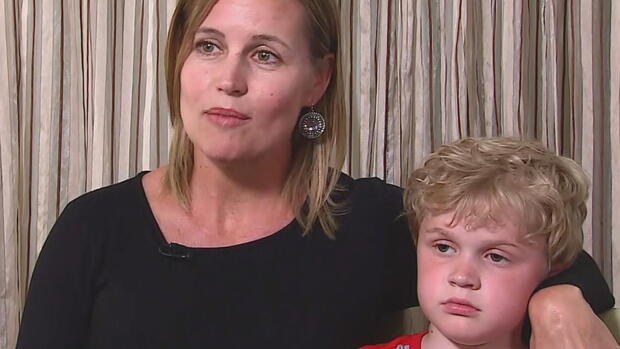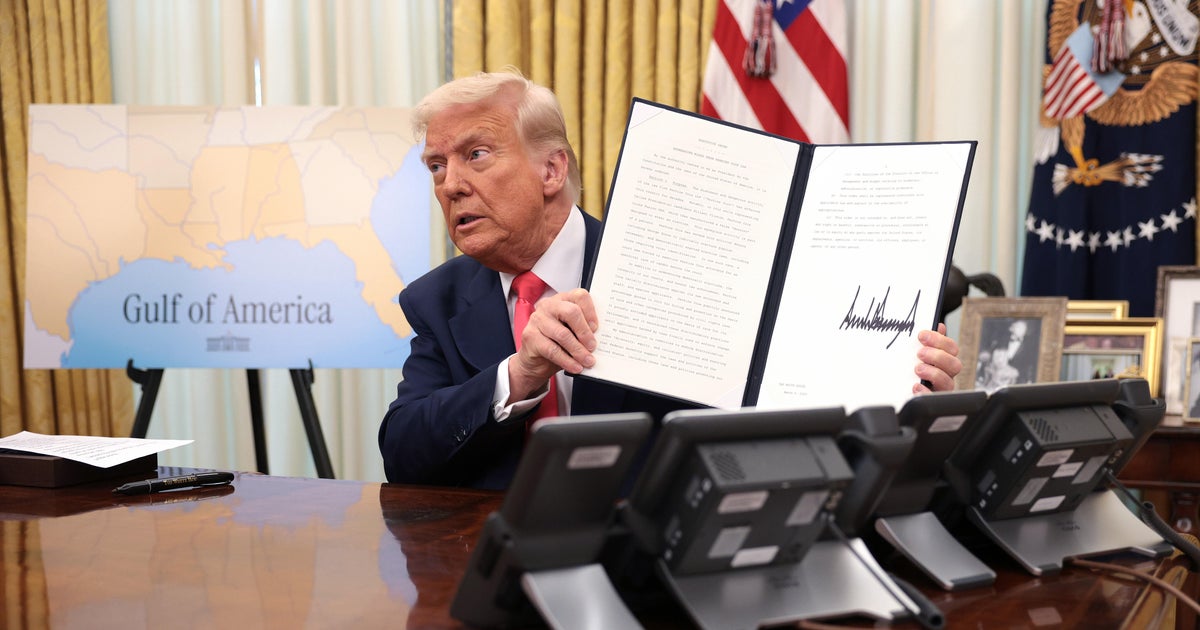Despite skepticism, family behind "right to try" law hopeful it will save lives
A new law, signed by President Trump Wednesday, allows terminally ill patients easier access to experimental drugs. Eight-year-old Jordan McLinn celebrated the long-awaited moment by hugging the president. He has become the nationwide face of the "right to try" campaign as he battles Duchenne muscular dystrophy.
But the bill is not without controversy. Opponents argue it's risky and doesn't give better access to drugs. Proponents, like Jordan and his mom, believe it could be lifesaving.
As the president signed the bill into law, Jordan went in for a hug. He missed the first few times but, eventually, they embraced. It was a hug years in the making. Those with Jordan's genetic degenerative disease have an average life expectancy of about 25 years.
"To see it just finally come to the finish line was just this huge accomplishment," Laura McLinn said.
Jordan and his mother Laura have been at the forefront of the movement to pass the "right to try" bill, which allows the terminally ill, who have exhausted all other options, to gain access to drugs not yet fully approved by the FDA.
CBS News first met the McLinn family in 2015 when "right to try" was signed into law in their home state of Indiana, by then-Governor Mike Pence.
Under FDA regulations, new drugs must go through three phases of clinical trials before becoming commercially available, which often takes years. "Right to try" now allows doctors to administer drugs that have cleared just the first phase of a trial. But opponents argue so-called "compassionate use" already allows patients to try experimental drugs with FDA approval. The FDA currently approves about 99 percent of experimental drug requests.
"Unfortunately, it's empty symbolism," said Alison Bateman-House, an assistant professor of medical ethics. She fears the bill gives false hope.
"Nobody can force a company to give a drug if it doesn't want to," she said. "I am not optimistic that it is going to be a pathway of getting access for patients."
But Laura McLinn is still hopeful.
"We've met so many people from different disease groups that can benefit from this law," Laura said.
As for Jordan, he had a long day, but meeting the president was worth it.
"He said my hair is very nice," Jordan said.
Laura said Jordan is actually now in the 65th week of a clinical trial. She said they continued the "right to try" fight for others and Jordan, who may still benefit from it down the road. She believes if a drug is safe enough for a clinical trial, it should be safe enough to use on someone who is dying.




